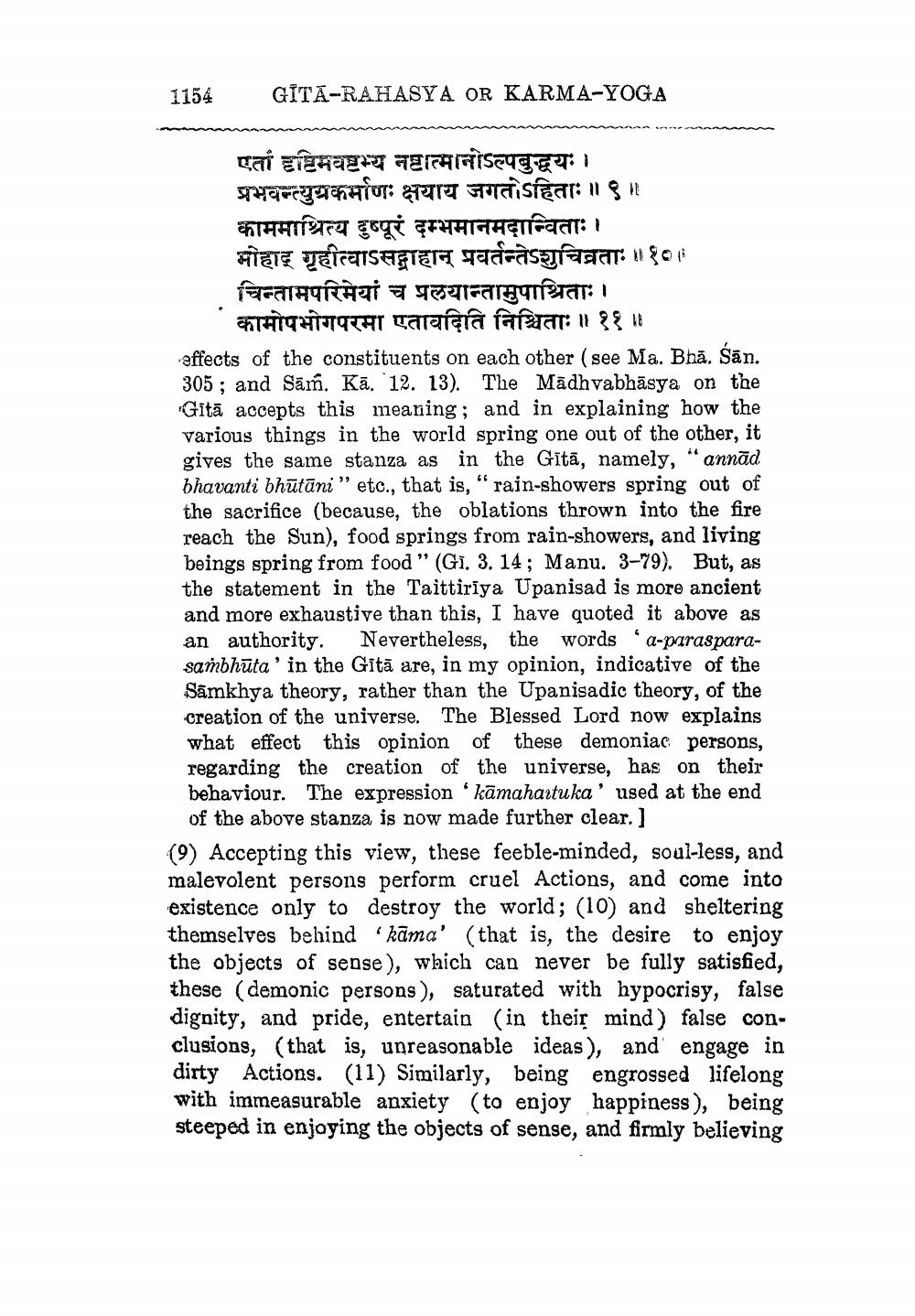________________
1154
GITA-RAHASYA OR KARMA-YOGA
एतां दृष्टिमवष्टभ्य नष्टात्मानोऽल्पबुद्धयः। प्रभवन्त्युग्रकर्माणः क्षयाय जगतोऽहिताः॥९॥ काममाश्रित्य दुष्पूरं दम्भमानमदान्विताः। मोहाद् गृहीत्वाऽसद्गाहान् प्रवर्तन्तेऽशुचिव्रताः ॥१०॥ चिन्तामपरिमेयां च प्रलयान्तामुपाश्रिताः।
कामोपभोगपरमा एतावदिति निश्चिताः ॥११॥ effects of the constituents on each other (see Ma. Bhä. Sän. 305 ; and Sām. Kā. 12. 13). The Madhvabhāsya on the Gitā accepts this meaning; and in explaining how the various things in the world spring one out of the other, it gives the same stanza as in the Gītā, namely, "annād bhavanti bhūtāni” etc., that is, “rain-showers spring out of the sacrifice (because, the oblations thrown into the fire reach the Sun), food springs from rain-showers, and living beings spring from food” (Gi. 3. 14; Manu. 3-79). But, as the statement in the Taittiriya Upanisad is more ancient and more exhaustive than this, I have quoted it above as an authority. Nevertheless, the words 'a-parasparasambhūta' in the Gitā are, in my opinion, indicative of the Samkhya theory, rather than the Upanisadic theory, of the creation of the universe. The Blessed Lord now explains what effect this opinion of these demoniac persons, regarding the creation of the universe, has on their behaviour. The expression "kāmahartuka' used at the end of the above stanza is now made further clear. ] (9) Accepting this view, these feeble-minded, soul-less, and malevolent persons perform cruel Actions, and come into existence only to destroy the world; (10) and sheltering themselves behind kama' (that is, the desire to enjoy the objects of sense), which can never be fully satisfied, these (demonic persons), saturated with hypocrisy, false dignity, and pride, entertain (in their mind) false conclusions, (that is, unreasonable ideas), and engage in dirty Actions. (11) Similarly, being engrossed lifelong with immeasurable anxiety (to enjoy happiness ), being steeped in enjoying the objects of sense, and firmly believing




